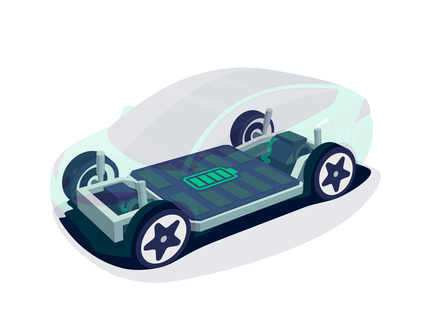Your one-stop certification solution!
E-Mobility Korea
On the topic of e-mobility in Korea, there are various requirements that must be considered by vehicle and component manufacturers.
Manufacturers of batteries and charging systems must deal with the Korean regulations and specifications of vehicle manufacturers. This requires clarification of numerous questions regarding costs, processes and requirements for the Korean market.

Requirement Management
MPR International can assist companies in reviewing requirements to understand and navigate these conditions to gain approval. This includes the ongoing review of regulatory and product-specific requirements so that products comply throughout their lifecycle. In addition, we support you in the evaluation of specification sheets as well as testing, registration, certification and monitoring obligations. With our support, companies are informed about developments in batteries, charging systems and other components, get an outlook on possible trends and associated costs.
Product Tests for Batteries and Charging Stations
As part of their complete vehicle homologation in Korea, vehicle manufacturers are obliged to provide proof of conformity as part of the registration for the complete vehicle. This is usually done via test reports according to the Korean regulations by the Korea Motor Vehicle Safety Standards (KMVSS). MPR International has partnerships with various accredited laboratories and can offer you all tests for different jurisdictions from a single source.
Testing of Batteries:
Vehicle manufacturers must provide evidence of testing for modules, packs and systems. These testing obligations are usually transferred to the component manufacturer. In addition, electric vehicles must also meet special crash test requirements with regards to electrical safety at the complete vehicle level.
Testing of Cells
At the cell level, battery cells for applications outside electric vehicles, such as e-scooters, mobile phones or laptops, are subject to KC Safety approval.
Battery cells according to KC 62619-2019 (IEC 62619-2017), for example for use in energy storage systems, there is a certification obligation within the KC Safety framework. This does not only require product tests in Korea, but also an audit of the production facility. After the initial certification, regular follow-up audits are necessary to maintain the validity of the certification.
Battery Module/Pack/System Testing
The requirements and test standards for battery modules, battery packs and battery systems result from the standard KMVSS TP 48 and contain a number of different tests to be performed.
These tests include:
- Vibration Test
- Thermal Shock Test
- Combustion Test
- Short-Circuit Test
- Overcharge Test
- Over-Discharge Test
- Overheating Test
- Overcurrent Test
- Immersion Test
- Mechanical Testing
- Impact Test
- Crush Test
- Drop Test
Electrical Safety for Electric Cars at Vehicle Level
At the complete vehicle level, there are some requirements for the electrical safety of high-voltage systems in electric vehicles. These are stipulated in KMVSS TP 47 and also define specifications for crash tests.
Testing of Electric Motors
Electric motors and their inverters must comply with Articles 11, 106 and 111 of the Korea Motor Vehicle Safety Standard. Tests shall be carried out in accordance with Test Procedure 23 of the Detailed Regulations of the Korea Motor Vehicle Safety Standards (KMVSS). An EU type approval according to ECE R85 can be used as proof of conformity in Korea.
Charging Solutions:
Products for charging electric vehicles, such as charging stations or wall boxes, are subject to the KC Safety certification in Korea. Important standards are KC 61851-1, KC 61851-22 and KC 61851-23. In addition, KC 62752 for the standardization of In-cable control and protection device (IC-CPD) was published at the end of 2022.
These charging solutions must undergo an approval process as part of KC Safety approval, which requires product testing in Korea.
Customs Clearance Services:
For product testing and validation, test samples (batteries, etc.) often are required to be imported to Korea. MPR supports the process of customs clearance and transport in Korea. MPR offers consulting services with regards to requirements for transport and import (product testing according to UN 38.3, requirements according to IMGD code or IATA-DGR (ICAO-TI), classification of Li-batteries (UN 3480, UN3481). As part of this MPR also provides the importer for the import to Korea.
MPR International has expertise in testing complete vehicles, components and other electrical components in the field of e-mobility. In the area of electrification of vehicles we offer complete services not only for Korea, but also for other markets such as China, Taiwan, India and the EU. Test laboratories in Europe or China can also be selected and tests can be combined for certain product tests. We are happy to inform you about your options.
MPR Services
Your One-Stop Certification Solution.
Our complete package for product certifications for Korea.
Information on the market requirements of Korea and other countries
Clarification of the relevant standards
Selection of the appropriate test laboratory or authority
Determination of required test samples
Conducting Product Tests
Support with supervising the tests by the manufacturer’s representatives
Provision of translations (test reports, standards, etc.)
Complete organization of certifications (including audit)
Advice on all questions relating to registrations and marking regulations
Contact Us!
MPR Korea Certification – expert consulting and implementation of certification projects worldwide.







